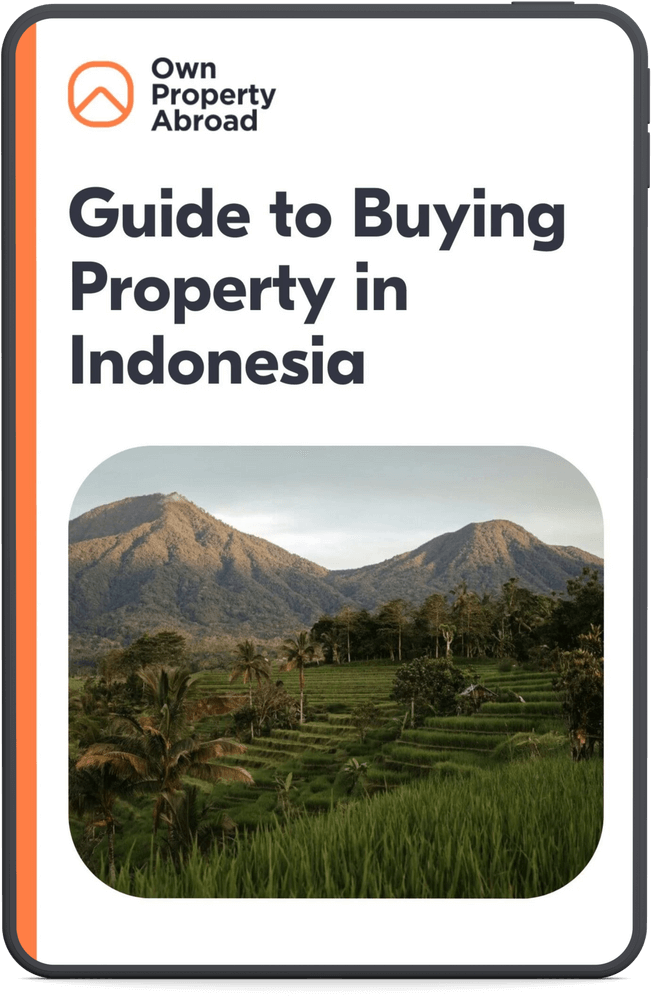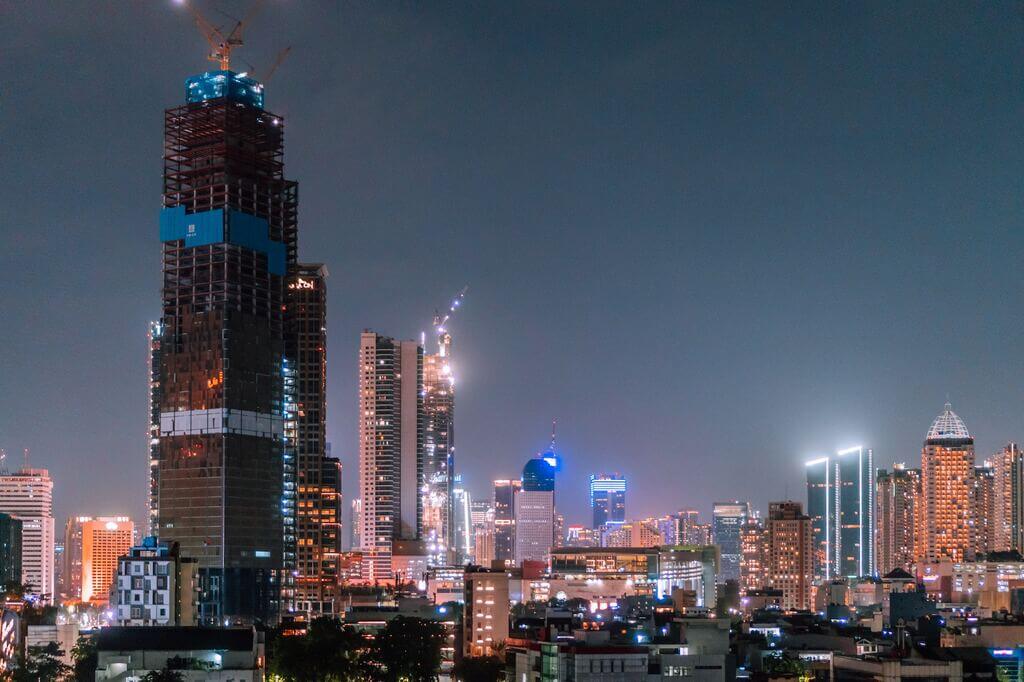8 crucial elements to understand before starting a factory in Indonesia
When setting up a company and factory in Jakarta, it’s essential to be familiar with the rules and regulations, such as foreign ownership rules, business registration, investment approval, and labor laws.
1. Foreign property ownership
Indonesia has specific restrictions on foreign ownership of land and property. This can affect your ability to buy a factory directly. In the past, many foreign companies have used a local nominee to buy property, which is illegal. It’s better to use a long-term lease agreement instead.
Valuable insights and practical advice, distilled from years of expertise and real-world experience.


2. Business registration
To operate a factory in Jakarta, you must register a foreign-owned company in Indonesia, a so-called Perseroan Terbatas Penanaman Modal Asing (PT PMA). This is the most common form of Indonesian business entity for foreigners.
3. Investment approval and industry-specific regulations
The size of your factory and your field might require the endorsement of the Indonesia Investment Coordinating Board (BKPM). Different sectors have specific rules that must be followed, which might also apply to your goods. For instance, food and pharmaceutical companies must adhere to extra health and safety guidelines.
4. Building and construction permits
To build a new factory, you must secure a Building Approval (PBG), formerly known as IMB. The requirements for this vary by location and size of the building.
5. Environmental regulations
Indonesia has strict environmental rules, which factories must adhere to. Depending on the nature of your operations, you may need to perform an environmental impact assessment, called Analisa Mengenai Dampak Lingkungan (AMDAL), and receive an environmental permit.
6. Labor law
To manage your workforce effectively in Indonesia, it’s essential to understand the country’s labor laws. These laws provide vital protection for employees, with regulations in place regarding working hours, minimum wage, and termination of employment. Familiarizing yourself with these regulations can help ensure fair and legal management practices.
7. Tax obligations
Your business may have tax responsibilities at both the national and local levels, depending on its size and nature.
8. Intellectual property
If you plan on manufacturing new and original products, it is essential to safeguard your intellectual property by obtaining legal protection under Indonesia’s IP laws.

How to choose the location for your factory in Jakarta?
Selecting the right location for your factory in Jakarta is an important decision that affects your operations, costs, and future growth. Key considerations include the quality of infrastructure at the Jakarta location, such as the roads, public transportation, utilities, and telecommunications.
Proximity to resources, markets, and skilled labor is also vital. If your business depends on certain raw materials or serves the local market, choosing a location close to these sources and customers can reduce costs. Being near a city can facilitate the recruitment of skilled workers, while an area in an industry cluster offers opportunities for collaboration and shared resources.
Government policies, zoning rules, environmental regulations, and taxes specific to the location can impact costs and operations. Some regions may offer incentives to manufacturers. Considering future growth, an area with room for expansion and close to logistical hubs is beneficial. For some businesses, the local climate may affect operations. It’s essential to consider these factors and conduct thorough research before deciding.
Advantages of choosing Jakarta for your company
There are numerous strategic and economic advantages to establishing a factory in Jakarta and Java:
- A young and growing labor force: With a population of about 275 million and a median age of 29.7 years, Indonesia has a large pool of young workers. This is expected to increase, making Indonesia the fifth most populous country in the world by 2030.
- Lowest labor costs in Southeast Asia: Indonesia has the lowest labor costs in Southeast Asia. Its labor costs are about 20% of what they are in China. This is a significant benefit for foreign companies that want to invest in the country by establishing a factory in Jakarta or Java.
- Diverse manufacturing sector: Indonesia’s manufacturing sector is diverse and makes up more than 20% of the country’s GDP. Clothing and textiles, electronics, cars, and the growing renewable energy sector are all big industries.
- Ambitious government goals: The Indonesian government wants the country to have one of the top ten economies in the world by 2030, with manufacturing as the primary industry. This goal will likely give businesses that want to open factories in Jakarta and Java many opportunities and help.
- Free trade agreements: Indonesia has only implemented its free trade agreement with Chile. However, it is currently in talks with India, Turkey, the EU, and Tunisia to make more agreements like this. Manufacturers can get more strategic benefits from these agreements in the future.
- Infrastructure development: Even though Indonesia’s infrastructure isn’t excellent right now, the government plans to invest a lot of money. Around IDR 6471650.5 billion ($394.77 billion) will be spent on different infrastructure projects between 2020 and 2024. This will help factories improve logistics and business operations in the long run.
These advantages, however, come with problems, such as the current state of infrastructure, bureaucracy, and red tape. Potential investors who want to set up a factory in Jakarta or Java should think about and plan for these problems.
Buying vs leasing a factory in Jakarta
In Indonesia, companies can legally purchase or rent real estate. Both options have pros and cons, each with different benefits and drawbacks. It’s essential to consider your specific needs and circumstances before deciding whether to buy or lease property.
Buying real estate in Jakarta
| Pros | Cons |
|---|---|
| Capital appreciation: Real estate generally appreciates over time, so buying a factory can provide a significant return on investment in the long run. In a city like Jakarta, which is rapidly developing, there could be substantial capital appreciation. | High upfront costs: Buying a factory involves a significant upfront investment which can strain cash flow, especially for a new or growing business. |
| Maintenance costs: As the owner, you are responsible for all repair and maintenance costs, which can be significant over time. | High upfront costs: Buying a factory involves a significant upfront investment, which can strain cash flow, especially for a new or growing business. |
| Fixed costs: Owning the property means you have a fixed asset, and your expenses related to the factory are predictable. This can help with budgeting and financial planning. | Less flexibility: If your business changes and you need to move or downsize, you must sell the factory, which can be long and complex. |
| No rent increases: Since you own the factory, you won’t face the uncertainty of rent increases. |
Leasing real estate in Jakarta
| Pros | Cons |
|---|---|
| Lower initial cost: Leasing requires less capital upfront than buying. This frees up cash for other aspects of your business, such as equipment, employees, or research and development. | No equity: When you lease, you don’t build equity in the property. All the money paid in rent goes to the landlord. |
| Flexibility: Leasing offers more flexibility than owning. If your business needs change, it’s easier to move from a leased factory than it is to sell an owned one. | Rent increases: Rent can increase over time, making budgeting more difficult. |
| Maintenance: Generally, the landlord is responsible for major repairs and maintenance, which can save you time and money. | Less control: When you lease, you have less control over the property. Any major changes will likely need approval from the landlord. |
| Possible premium locations: With leasing, you might be able to afford a location in a prime area of Jakarta, which may not be possible if you were buying. | Uncertainty: At the end of your lease term, the landlord may choose not to renew your lease or may significantly increase the rent. |
It’s important to note that the benefits and drawbacks of a particular location in Jakarta may vary depending on various factors, such as the nature of your business, the current real estate market, and your company’s financial situation. To make an informed decision, it’s recommended to conduct a thorough cost-benefit analysis with the assistance of a financial advisor or commercial real estate expert.
Valuable insights and practical advice, distilled from years of expertise and real-world experience.


Frequently Asked Questions (FAQs)
Can foreigners set up a company in Indonesia?
Yes, foreigners can set up a company in Indonesia. Foreign investors’ most common business entity is the foreign-owned limited liability company, PT PMA (Perseroan Terbatas Penanaman Modal Asing).
Is Jakarta a good place to establish a factory?
Yes, a PT PMA can own a factory in Indonesia. However, there are certain restrictions on foreign ownership of land and property. Therefore, the process often involves using a local nominee or entering into a long-term lease agreement.
Can a PT PMA buy a factory in Indonesia?
Jakarta can be an excellent place to establish a factory due to its strong infrastructure, skilled workforce, and proximity to large markets. However, factors such as industry, access to raw materials, local regulations, and cost should be considered to determine the best location for a specific business.
What are the best parts in Indonesia for starting a factory?
The best part of Indonesia for starting a factory depends on your specific business needs. Jakarta and its surrounding areas, like Bogor, Tangerang, and Bekasi, are famous due to their developed infrastructure and access to large labor pools. For industries that depend on specific natural resources, regions like Kalimantan for coal, Sumatra for palm oil, or Papua for minerals might be the best choice. Areas like Batam and Bintan offer incentives for manufacturers due to their status as free trade zones and proximity to international markets.




